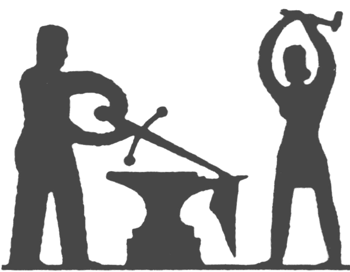The Catholic peace movement is at a critical stage
August 21, 2018
US Catholic
The Catholic peace movement is at a critical stage
By Judith Valente
Seated in a circle on sofas and easy chairs at a church rectory in a largely Hispanic section of South Bend, Indiana, a group of students from Notre Dame University and Holy Cross College train their eyes on a whiteboard. Scribbled in blue marker are the headings “Corporal Works of Mercy” and “Spiritual Works of Mercy,” along with quotes from Catholic Worker founder Dorothy Day and Trappist monk and spiritual writer Thomas Merton.
It is part of a student retreat sponsored by Holy Cross College Campus Ministry and the Catholic Peace Fellowship, an organization that dates back to the early 1960s and that is deeply influenced by Day’s and Merton’s writings on peace and nonviolence.
“The beginning of all peace work is prayer,” says Shawn Storer, director of the Catholic Peace Fellowship. He’s a bearded man with a shock of wavy hair, and he’s dressed in a denim shirt and green sweater vest. At 40 he looks barely older than the college students he is addressing.
The discussion centers on the hunger for meaning, engagement with people on the margins of society, and what the gospels teach about nonviolence. At the retreat’s end some of the students head to a Spanish-language Mass. Then it’s on to do some painting and repair work at Our Lady of the Road, a Catholic Worker-run facility that offers food and fellowship to South Bend’s homeless population.
About a month after this Peace Fellowship retreat, on the 50th anniversary of Martin Luther King’s assassination, seven peace activists clipped a lock and broke into the Kings Bay Trident nuclear missile submarine base in St. Mary’s, Georgia. The seven, all members of the Plowshares peace group, carried hammers, banners, crime scene tape, and baby bottles of their own blood, which they splashed on a Navy insignia.
“We come in peace. We are unarmed and wish you no harm,” one of the protesters called out.
All seven were swiftly caught. Among those arrested were Elizabeth McAlister, the 81-year-old widow of the famous peace activist Philip Berrigan, and Dorothy Day’s granddaughter, Martha
Hennessy, a 62-year-old grandmother of eight. Each protester was charged with trespassing and defacing government property and spent months in jail on $50,000 bonds.
Hennessy called the event “an act of atonement” for the U.S. stockpiling of nuclear weapons. Patrick O’Neill, 61, another of the Plowshares protesters, described it as “putting prayer into action.”
The Catholic Peace Fellowship and Plowshares (the name refers to Isaiah’s command to hammer swords into plowshares) represent different points on a spectrum of Catholic peace activism. Acts of civil disobedience, like the break-in at Kings Bay, the world’s largest nuclear submarine base, were once common during the Vietnam War and the arms race.
While nonviolence remains at the heart of gospel teaching, peace advocates today are debating what the church’s future direction should be. Should there be more widespread public actions, or do protests and demonstrations merely reinforce divisions? Should the focus be on education and personal transformation? Some activists even question if there is still a “Catholic” peace movement…
Read more- https://www.uscatholic.org/print/31475
